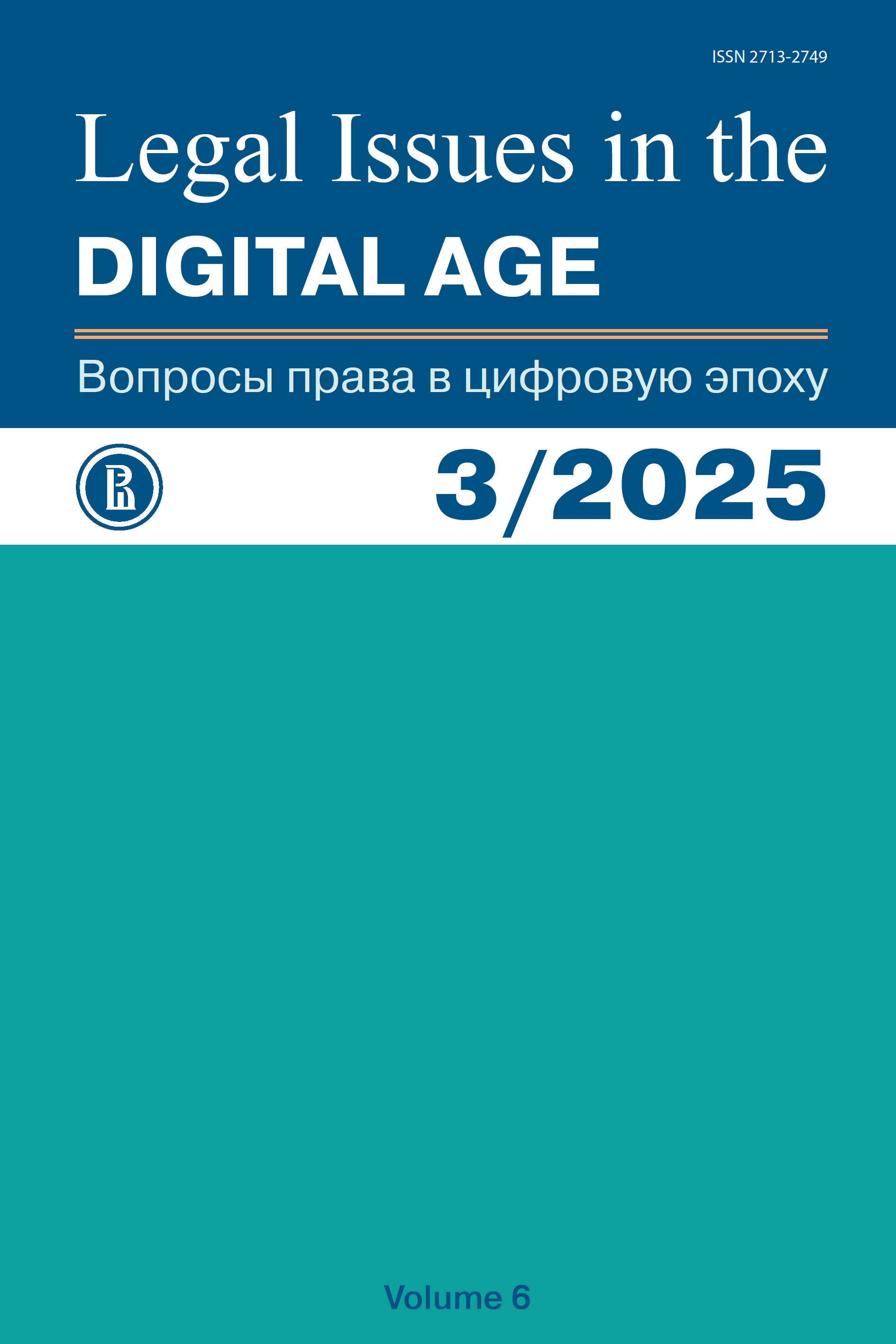Natural Person’s Posthumous Image Protection and the Scope of Heir Discretion
Аннотация
While a person’s legal capacity ends up with death, his or her honor, dignity and privacy could continue to be protected. The emerging computer technologies expand the scope of human image manipulation by offering technical capabilities for a full-fledged reproduction of human face with its characteristic expression and movements. The difficulty is thus to delineate the virtual person and the real one for protecting both private and public interests. The article concludes that children, spouse and other heirs should not have the right to allow commercial use of the person’s image unless consented by him in his lifetime. It is argued the public interest to identify a natural person and separate him from a virtual double is to be protected. It is further demonstrated the likelihood of confusion grows with the progress of digital technologies, only to make a case for better protection of private interest that involves legitimate claims by family members to clear the decedent of any association with what he or she did not do. The interest of the third parties including consumers is likewise to be kept in mind, with a disclaimer to be given of someone’s image reproduced through the use of digital technologies in a movie or other complex product: since the offered digital product will not carry anything new, consumers have the right to know creative outcome from an average digital clone.
Литература
Belov V.A. (2024) The civil law. Vol. I. The general part. Introduction. A textbook. 3rd ed. Moscow: Yurait, 624 p. (in Russ.)
Bratus S.N. (1950) Subjects of civil law. Moscow: State Publishing House of Law Literature, 368 p. (in Russ.)
Chechot D.M. (1968) Subjective law and the forms of its protection. Leningrad: University Press, 72 p. (in Russ.)
Cherepakhin B.B. (2001) Succession under the Soviet civil law. In: Cherepakhin B.B. Proceedings on civil law. Moscow: Statut, pp. 310–442 (in Russ.)
Fleishits E.A. (2015) Personal rights in civil law of the USSR and capitalist countries. In: Fleishits E.A. Selected works on civil law. Moscow: Statut, 512 p. (in Russ.)
Gavrilov E. (2015) Protection of the external appearance and protection of the image of individuals. Khoziaystvo i pravo=Economy and Law, no. 10, pp. 13–25 (in Russ.)
Gomille C. (2021) Das Allgemeine Persönlichkeitsrecht im Erbgang. In: Festschrift für Johannes Hager zum 70. Geburtstag am 09.07.2021. In: Herausgegeben von Timo Fest und Christian Gomille. Schriften zum Bürgerlichen Recht. Band 536. Berlin: Duncker & Humblot, pp. 297–313.
Gongalo B.M. (2020) The legal personality of individuals. In: The civil law of welfare state: collection of articles. V.V. Vitryansky, E.A. Sukhanov (eds.). Moscow: Statut, pp. 136–148 (in Russ.)
Gribanov V.P. (2000) The concept of interest in civil law. Implementation and protection of civil rights. Moscow: Statut, 414 p. (in Russ.)
Illarionova T.I. (1987) Succession as a way of regulating the property status of a state self-sufficient enterprise (association). In: The role of Soviet civil law in accelerating socio-economic development of the socialist society. Collection of papers. Sverdlovsk: University, pp. 42–50 (in Russ.)
Karapetov A.G. (2017) Commentary to Art. 307 of the Civil Code. In: Contractual and obligation law (general part). In: article-by-article commentary to Articles 307-453 of the Civil Code of the Russian Federation. A.G. Karapetov (ed.). Moscow: M-Logos, p. 38.
Khodyreva E.A. (2024) Exercising personal non-property rights after a person’s death. Notarialnui vestnik=Notary’s Bulletin, no. 10, pp. 30-37 (in Russ.)
Komissarova E.G. (2002) Principles of law and the basic principles of civil legislation. Doctor of Juridical Sciences Thesis. Yekaterinburg, 303 p. (in Russ.)
Krasavchikov O.A. (2001) Civil law contract: concept, content and functions. In: Anthology of Ural civil law. 1925–1989: collection of articles. Moscow: Statut, pp. 169-170 (in Russ.)
Krasavchikova L.O. (1994) The concept and system of personal rights of individuals not related to property in the civil law of the Russian Federation. Doctor of Juridical Sciences Thesis. Yekaterinburg, 49 p. (in Russ.)
Krasavchikova L.O. (2017) Chapter 9. Personal non-property rights. In: The civil law. B.M. Gongalo (ed.). Vol. 1. Moscow: Statut, pp. 214–246 (in Russ.)
Maleina M.N. (1997) Personal non-property rights of individuals: concept, implementation, protection. Doctor of Juridical Sciences Thesis. Moscow, 431 p. (in Russ.)
McKenna M. (2007) The normative foundations of trademark law. Notre Dame University Law Review, vol. 82, no. 10, p. 1839.
Pokrovsky I.A. (1998) Main problems of civil law. Moscow: Statut, 353 p. (in Russ.)
Rixecker R. (2021) Anhang zu § 12. Das Allgemeine Persönlichkeitsrecht (AllgPersön lR). Münchener Kommentar zum BGB. 9. Auflage. Munchen: C.H. Beck, 270 S.
Sinitsyn S.A. (2017) The general doctrine of absolute and relative subjective civil rights. Doctor of Juridical Sciences Thesis. Moscow, 604 p. (in Russ.)
Tretyakov S.V. (2022) Development of subjective private law doctrine in international civil law. Doctor of Juridical Sciences Thesis. Moscow, 495 p. (in Russ.)
Vaskovsky E.V. (2002) Civilistic methodology. The doctrine of interpretation and application of civil law. Moscow: Yurinfor, 507 p. (in Russ.)
Copyright (c) 2025 Ostanina E.A.

Это произведение доступно по лицензии Creative Commons «Attribution-ShareAlike» («Атрибуция — На тех же условиях») 4.0 Всемирная.
Авторы, присылающие рукописи для рассмотрения к публикации в Журнале, принимают Политику лицензирования, авторских прав, открытого доступа и использования репозиториев.









